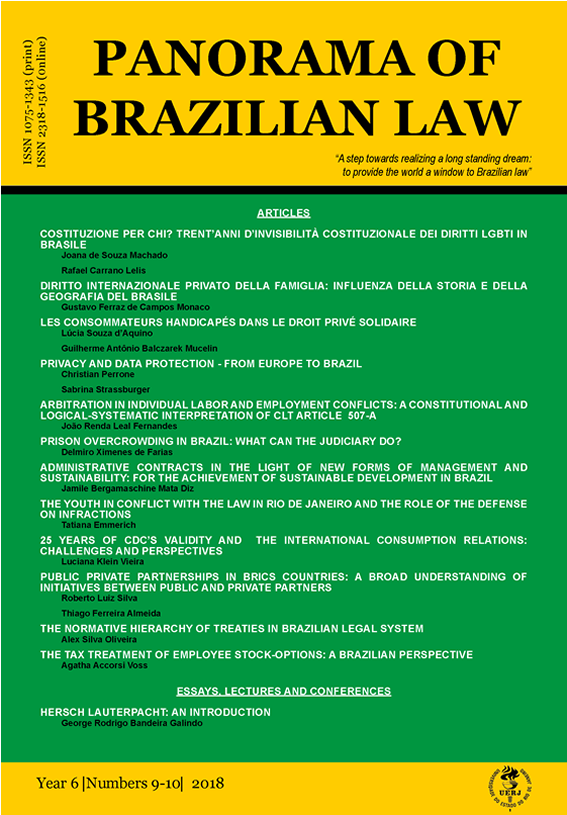Arbitration in individual labor conflicts: a constitutional and logical-systematic interpretation of article 507-A of the Consolidated Labor Laws (CLT)
Abstract
Article 507-A, added to the Consolidated Labor Laws (CLT) by Statute 13,467/2017 (Labor Reform Act), allows for the possibility of inserting an arbitration clause into individual employment contracts, provided that the presence of this clause derived from the initiative of the employee itself or enjoyed its express agreement. As is known, the resolution of a conflict via the arbitral route depends on the existence of an arbitration agreement, which can take two distinct forms: an arbitration clause or a compromissum to arbitration. In the light of the provisions contained in article 114, paragraphs 1 and 2 of the 1988 Brazilian Federal Constitution (CRFB/88), previously, in case law, the view prevailed that arbitration was allowed only to resolve collective labor conflicts. In introducing article 507-A to the text of the CLT, the Labor Reform put into effect by Statute 13,467/2017 reopened the debate regarding the applicability of arbitration as an extrajudicial means of resolving individual conflicts in the labor sphere.Downloads
Published
2019-09-09
How to Cite
Fernandes, J. R. L. (2019). Arbitration in individual labor conflicts: a constitutional and logical-systematic interpretation of article 507-A of the Consolidated Labor Laws (CLT). PANORAMA OF BRAZILIAN LAW, 6(9-10), 101–123. Retrieved from https://www.e-publicacoes.uerj.br/pbl/article/view/38628
Issue
Section
Articles
License
Panorama of Brazilian Law employs Open Journal Access policies.
Authors are fully and exclusively responsible for their submissions.
Authors who publish with this journal agree to the following terms:
- Authors retain copyright and grant the journal right of first publication with the work simultaneously licensed under a Creative Commons Attribution-NonCommercial-ShareAlike 4.0 International License that allows others to share the work on a non-comercial basis with an acknowledgement of the work's authorship and initial publication in this journal and indicating if any changes were made. If you remix, transform, or build upon the material, you must distribute your contributions under the same license as the original.
- Authors are able to enter into separate, additional contractual arrangements for the non-exclusive distribution of the journal's published version of the work (e.g., post it to an institutional repository or publish it in a book), with an acknowledgement of its initial publication in this journal.

